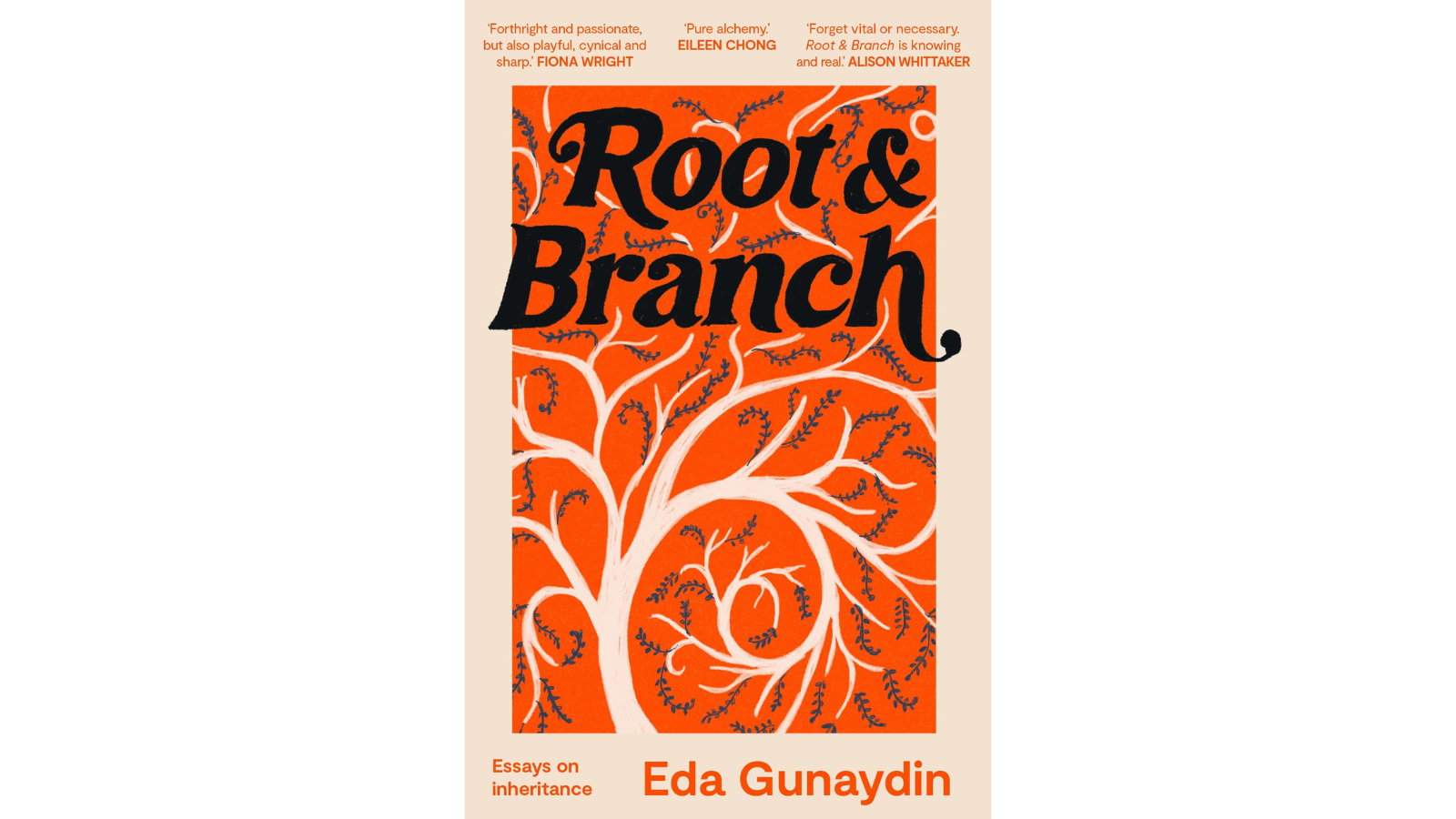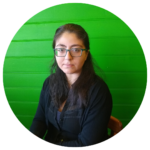Non-Fiction Award Shortlist

Title: Root & Branch: Essays on Inheritance
Author: Eda Gunaydin
Publisher: NewSouth Publishing
I have come to see that I am an argumentative person who is frequently convinced that my angle, my take, on a matter, is the right one. This kind of delusional self-belief is not rewarded in many other spheres of social life, so I write essays.
There is a Turkish saying that one’s home is not where one is born, but where one grows full – doğduğun yer değil, doyduğun yer. Exquisitely written, Root & Branch unsettles neat descriptions of inheritance, belonging and place. Eda Gunaydin’s essays ask: what are the legacies of migration, apart from loss? And how do we find comfort in where we are?
Judges’ report
This much-anticipated debut from Eda Gunaydin truly exceeds expectations. In a series of essays that fuse life writing and cultural criticism, Gunaydin brings her tremendous intellect to bear on questions of class, capital, labour and diaspora. Whilst exploring these issues, Root & Branch also productively challenges the monolingualism of local publishing by interweaving untranslated Turkish into the text. In both its content and form, this book delivers a sharp slap to the complacencies and hypocrisies of Australian culture. The result is a gift: intellectually rigorous yet always passionate, deadly earnest but also terrifically funny. Root & Branch confirms Gunaydin as one of our most astute and necessary cultural critics.
Extract
A Rock Is A Hard Place
Mum wants to eat Turkish food. She always wants to eat Turkish food.
‘Lütfen,’ she implores, every weekend. ‘Benim hatırım için. Yoksa çok yalnız kalıyorum.’ I fancy that I can save her from loneliness by choking down iskender together once a week. It’s sacrificial lamb.
Her kebab place of choice is on Blacktown’s Main Street. I know there are eight kebab places on Main Street. I mean the Turkish place. Not the kebab place run by the Afghans or Lebanese. You can pick it out because it sells Turkish bread, not Afghan or Lebanese bread. And you can tell it from the amcas and yenges without jobs and with heart conditions who sit out front sculling black tea all day, holding sugar cubes in their cheeks while they gulp and gossip and argue. They slide into the back to prepare fresh cups, and don’t pay for them come bill time.
Before the doorbell can tinkle, Barış is in motion. Barış is the owner of a kebab shop on Main Street. He runs his own HSP Appreciation page, on which he posts photographs of the HSPs he makes: packed, stuffed, laden things, layers of chips and meat crammed into a pizza box – something I know, from experience, weighs at least two kilos and which it feels improbable that someone is supposed to eat, although it is possible this is a form of cultural cringe. He captions his creations with text written on the box lid in barbecue sauce.
Barış is also the one who said I dress like a slut, last week, I think in retaliation for my yelling at him for making fun of the girl who was burned to death in a minibus. The minibus in Turkey, I mean. So many minibus murders it’s hard to keep track. So is he really polite if he doesn’t charge for tea? I don’t know. I don’t make the rules.
‘Teyze!’ he says. Drops the veritable machete he uses to strip meat from the rotisserie, scrambles out from behind the counter, snaps up the used plates from our table and disappears them into the back. I can see he is on his best behaviour, not because anyone has attempted to avenge me for the slut comment, but rather because during the course of that same conversation with my mother, while I was still out of earshot, he also happened to call my sister Dilek fat. I imagine him saying something like, ‘Oh, the fat one or the slut one?’ and have to contain my laughter about how much of an arsehole you have to be. When my mother told my father what had occurred, it angered him so much that he drove to Barış’s shop in the evening, fresh off work, wearing his steel-capped boots, and kicked the man in the leg. I don’t see why I should have to contain my mirth over that story, which I view as functionally perfect in every way: the image of the kicking, my sister’s pleading face, both hurt and begging my father not to react.
Still, teyze is the right thing for him to say. My mother likes it when they call her teyze and ignore their white and black customers to make us shitty coffee on the espresso machine Barış bought from a school canteen, to class up the place. She likes it when she can order for me rather than me for her. We take a seat on red pleather chairs with cigarette burns in them. We never sit outside because she says there are Kurds in front. I don’t know. I don’t make the rules.
It doesn’t bother me as much today. It’s January and this way we don’t have to be under the sun. In Turkish we say güneşin alnı. On the forehead of the sun. It’s a malapropism – the phrase for ‘under the sun’ is güneşin altı. But I prefer the former because it’s funny. I like to be able to like and to know something about Turkish, besides the fucking food.
Mum reaches out to smack me on the knee. ‘Lezbiyenler gibi oturuyorsun yine. Kahvedeki adamlar gibi.’
I’m sitting like a lesbian again. Mothers always know. Or I’m sitting like some grizzled man at a coffeehouse spinning a tespih through my fingers, playing endless games of tavla with my grizzled man friends. My mother has never sat in any way other than with one ankle tucked behind the other, pleats straight, and a gold brooch doing that thing of drawing-not- drawing attention to her tits.
‘Aren’t you a lesbian now?’ I say. I’m ribbing. I’ve just found out she went to Erkek Ayşe’s house last week. They tried on dresses together. Erkek Ayşe has permanently cropped hair which she has cut at the barber on Main Street. She is always in a vest. Her upper left arm permanently bulging from how she stores her cigarettes, in the sleeve of her t-shirt. We call her Erkek Ayşe. Like the way there’s too many Kemals so we call one Bald Kemal, the other Funny Kemal. Fat Ahmet, Plasterer Ahmet. Erkek Ayşe is Man Ayşe. I don’t make the rules.
‘The woman is married,’ my mother insists. Holds out her fingers and looks at her wedding ring with a little moue of her own.
‘You hung out in your underwear together,’ I remind her, sip my cappuccino and try to un-lesbian my legs as a gesture of good will.
Erkek Ayşe is sitting outside, in fact. Mum had breezed past with no greeting.
‘I bet she’s mad at me.’ My mother snickers.
‘For what?’ I say. ‘Did you not let her down gently?’
I look out the window to soak in her butch realness one more time. At this, Ayşe notices us and stands, pointing a crooked finger at Mum the whole time she’s marching up. She scrapes back the third chair at our table and drops in.
‘Bersa,’ she announces.
‘Besra,’ says Mum. Ayşe gets it wrong every time, I think – hope – on purpose. Any woman who can knock my mother down a notch, for me, hangs the moon.
‘You know I don’t like to speak your language,’ she says, in Mum’s language. She sniffs. ‘Your government tried to make it illegal but I still spoke only Kurdish till I was eight years old.’ She leans into her accent.
‘It’s not illegal,’ says Mum immediately. ‘Who told you it was?’
‘My uncle, who was taken political prisoner for teaching Kurmanji,’ says Erkek Ayşe. ‘Listen. We have to talk about what you posted on Face.’ What Turks call Facebook. My mother is a notorious sharer of nationalist memes – horny poetry about Atatürk, flags flapping, genocide denial. ‘I keep saying that we’d be great friends if you just posted your selfies and Mahjong games and that’s it.’
Mum interrupts.
‘Look, Ayşe, I know we are friends –’ I want to say they call each other friend too often for there not to be homoeroetic subtext but it’s not the right time. I’m an expert at taking the piss, but less sure about where to put the piss I collect. ‘– but you have to understand. Ben Atatürkçüyüm, ben cumhuriyetçiyim ve bunu benden alamazsın.’
‘No one is trying to take away your Kemalism,’ says Erkek Ayşe. She is idyllically calm. I can see the others watching us.
Mum interrupts again.
‘I have to insist on this, Ayşe. If you do not love the republic that doesn’t mean I shouldn’t. What happened when the Greeks were putting our Turkish babies on pikes? Atatürk threw them back into the sea! Shouldn’t I be proud?’ ‘Tamam, Berva,’ says Erkek Ayşe. ‘All right. Afiyet olsun.’
Her retreat is dignified but the air is crackling. I think we might get punched.
‘Kürt inadı gibi hiçbir şey görmedim. Kurdish stub- bornness is something else. I knew she’d react like that. My big mouth. I’m so naughty, aren’t I?
Mum stands to retrieve a copy of Hürriyet newspaper from the stand by the door, which she unfurls imperiously. Imperialistically. She searches through her purse, at leisure and without sparing a look up or outside, retrieves her reading glasses, slides them up her nose, and cracks into solving the crossword.
The amcas and yenges are still watching us. One of them makes to stand but Erkek Ayşe tugs him back down. I pull my gaze to Mum, clear my throat, and can’t help but laugh.
About the author

Eda Gunaydin is a Turkish-Australian essayist and researcher, whose writing explores class, capital, intergenerational trauma and diaspora. You can find her work in the Sydney Review of Books, Meanjin, The Lifted Brow, and others. She has been a finalist for a Queensland Literary Award and the Scribe Nonfiction Prize. Root & Branch is her debut essay collection.
Related Posts

Read
Anne-Marie Te Whiu Receives The Next Chapter Alumni Poetry Fellowship
2 Apr 2024

Read
What's on in April: Resident Organisation Round Up
28 Mar 2024

Read
Blak & Bright First Nations Literary Festival returns in 2024
7 Mar 2024

Read
What's on in March: Resident Organisation Round Up
29 Feb 2024

Read
Hot Desk Extract: International
23 Feb 2024

Read
Hot Desk Extract: The Rooms
23 Feb 2024
Share this content